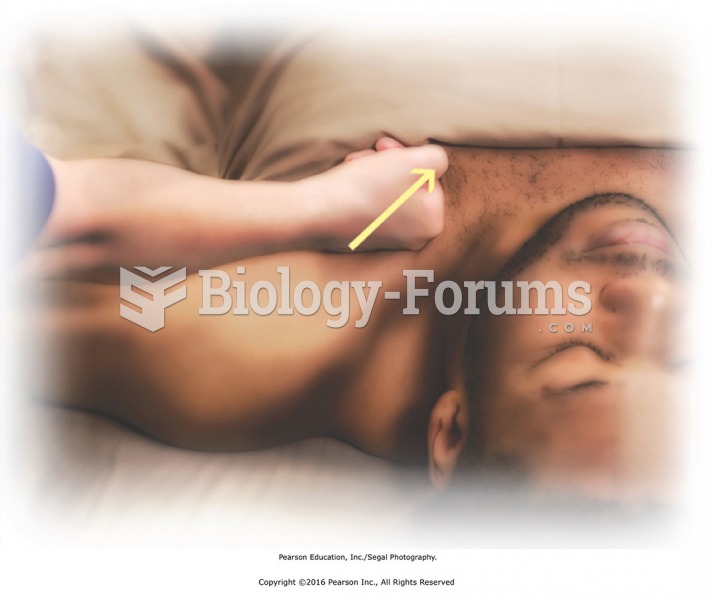|
|
|
The Centers for Disease Control and Prevention has released reports detailing the deaths of infants (younger than 1 year of age) who died after being given cold and cough medications. This underscores the importance of educating parents that children younger than 2 years of age should never be given over-the-counter cold and cough medications without consulting their physicians.
There are 20 feet of blood vessels in each square inch of human skin.
Studies show that systolic blood pressure can be significantly lowered by taking statins. In fact, the higher the patient's baseline blood pressure, the greater the effect of statins on his or her blood pressure.
Cytomegalovirus affects nearly the same amount of newborns every year as Down syndrome.
When blood is exposed to air, it clots. Heparin allows the blood to come in direct contact with air without clotting.






